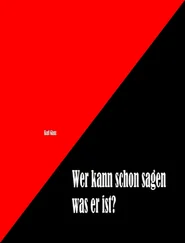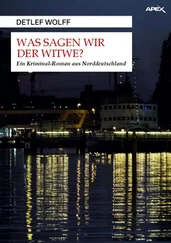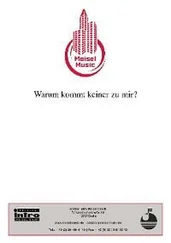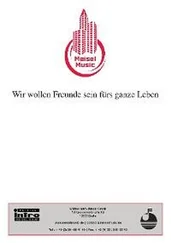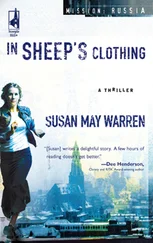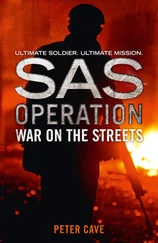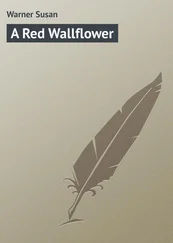Radford ordered a car for his dinner companion, made a note to send her a dozen roses, then made another call. Ten minutes later he got out of his car in front of Paul Friedman’s home on Dumbarton Street in Georgetown. Two Secret Service men with crackling handheld transceivers met him at the door and checked his ID. There were undoubtedly others he couldn’t see posted around the house. Admitted to Friedman’s study, where cigar smoke hung in thick layers, he found the president of the United States sitting in a chair with a drink in his hand.
“Karl, good to see you,” the president called, waving with his drink. He sat opposite Friedman at a small table with the remains of a sandwich and potato chips in a plate by his elbow. Drink-mixing paraphernalia and a bottle of bourbon stood on a sideboard. Papers lay strewn on the floor around the president’s feet, and he stepped on some as he rose to greet Radford.
Radford knew the president sometimes visited Friedman to play poker and get away from the constraints of the White House. But instead of winning a few bucks from his national security advisor, this evening he had been preparing for his summit meeting with the Russian president.
Friedman said, “Drink, Karl?”
Radford shook his head no.
Both the president and Friedman held Radford in their gaze, measuring Radford’s unease while telegraphing theirs.
“What’s happened, Karl?” said Friedman.
“Trouble.” Radford briefed from his notes and both the president and Friedman listened intently, not asking questions. When he finished he laid out his recommendations and a plea that the president cancel his summit meeting.
The president rose and, brushing crumbs from his lap, said, “Trouble indeed, and it seems to have a way of finding Captain Scott. Do you trust his assessment of the situation?”
“Yes, sir. He’s on the scene in Olenya Bay and knows firsthand what’s unfolding. I admit it seems unbelievable, but I think we have to accept that Zakayev is determined to bring down the Russian government.”
“By killing me and my Russian counterpart and a couple of million Russian citizens with nuclear- tipped missiles.” “I want to reiterate, sir, what Scott said: that the Russians are sure there are no cruise missiles, nuclear or conventional, aboard that sub. Still, I think it wise to assume for the moment that there are.”
“Has Zakayev and his cohort, this…”
“Georgi Litvanov,” said Radford.
“…made any demands either on us or the Russians?”
“No, sir, not yet,” Radford said. “But we don’t have time to wait for an ultimatum or to make a deal with them. The situation is unprecedented and we can’t afford a mistake.”
The president put his unfinished drink aside. “Okay, Karl, we’d better have a chat with Defense and the chairman of the Joint Chiefs, bring them in on this now.” He turned to Friedman. “Paul, while we’re at it, set up a meeting with the Russian ambassador tonight. Let’s find out what they know, see how we can coordinate our efforts to head this thing off. After I’ve talked with the ambassador, I’ll talk to the Kremlin.”
“Yes, sir. I’ll also contact Admiral Grishkov, С in C, Northern Fleet.”
“Do you know him, Karl?”
“Yes, sir, he’s a leftover from the Putin days, but a man we can work with.”
“Good. What else?”
Friedman said, “Sir, I think it would be prudent to cancel the summit meeting—”
“Out of the question,” the president said with conviction. “The press will say we’ve been blackmailed by terrorists. I’m sure the Russians would agree.” “Sir, I must protest. I agree we can’t give in to terrorist demands, but the situation is too dangerous to risk a summit meeting now. In fact, announcing that you will not attend the meeting may well disrupt Zakayev’s plans and forestall an attack on Russia. With all due respect, you can’t risk your life and the lives of millions of innocent people. And if Zakayev does carry out his plan, the Russians may well retaliate with nuclear weapons that would devastate not only Chechnya but the entire Caucasus region. It could ignite World War III!”
“Nice speech, Paul,” said the president, “but the summit meeting will take place as planned. Now, how about calling the Russian ambassador.”
* * *
Zakayev closed the door of his stateroom so he could be alone. The K-363 was so big that each officer had had his own stateroom. And because so many officers from Litvanov’s crew had been left behind, there had been many empty staterooms to choose from. The one he picked was large—larger than Litvanov’s—and well appointed. It had a comfortable bunk, a desk, chairs, and a head complete with a shower and fixtures worthy of a luxury hotel. The stateroom also came equipped with a video monitor slaved to the monitor in the CCP that displayed images seen through the periscope.
Zakayev sat on the edge of his bunk and unzipped a canvas duffel. He took out a small hand-tooled leather portfolio containing color photos of his wife and three children, the only ones he had of them.
Irina. Smiling, posing for the camera against their one-story whitewashed house in Caucasian Grozny. It was spring, and they had been planting flowers in the side yard. Feigning impatience with his manipulation of the old Argus C3 camera, she had brushed dark strands of hair from her face, leaving a streak of mud on a cheek that had showed up in the photo, and, she said, made her look like a krestyanka—a peasant. It was his favorite picture of Irina, exuding seduction and vulnerability in equal proportion. The children had joined in, and after the picture-taking session they had cleaned up and gone to Zakayev’s mother’s house for dinner. A week later Irina, the children, his mother were dead.
There had been warnings circulating for weeks that Russian Spetsnaz supported by armor had been probing the outskirts of Grozny in search of rebels who had attacked a Russian outpost and killed ten soldiers. No one in Zakayev’s neighborhood had seemed overly concerned because the rebels being hunted had moved north.
Zakayev had been attending a strategy meeting in central Grozny with members of the Muslim Brotherhood when he received a frantic phone call from his uncle about a disaster unfolding at home. By the time he arrived, it was too late. His house, along with several others, had been leveled by Russian tanks. He found Irina, the children, and his mother lying in the side yard by the flower beds, shredded by machine gun bullets.
Looking at their pictures now, he remembered the white-bearded village elder who had said, “For a Chechen, death is unimportant. What matters most for a Chechen is to have lived and died for your family and your people.”
There was a soft knock at the door of his stateroom and a voice said, “Ali?”
He put the pictures away and opened the door.
“Would you rather be alone?” the girl asked. She had her own stateroom next to Zakayev’s.
“No. Come in.”
She looked at him in his dark blue submarine work coveralls, the same kind she had on except that hers were too big and had rolled-up sleeves and pant legs. “I wanted to be with you,” she said. “Do you mind?”
“No, I don’t mind,” Zakayev said. He held her by the arms and kissed her forehead.
“You seem distracted,” she said. “Are you worried about something?”
He released her and they sat on his bunk. “I’ve been going over our plan. In a little while Litvanov will put up a radio mast to monitor a CNN broadcast to see if the Americans have canceled the summit. If they have, it means the Americans and Russians are hunting for us because they know something is going to happen. Then we can expect to run into American and Russian naval forces, but Litvanov is good and I’m not worried about that.”
Читать дальше


